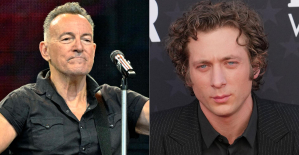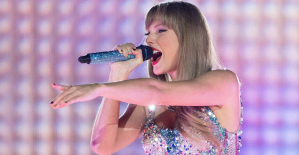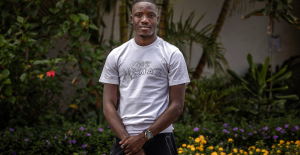You're less likely to see QAnon catchphrases such as "great awakening," the storm, or "trust my plan" on Facebook these day. Facebook and Twitter removed thousands of accounts that were dedicated to this baseless conspiracy theory. It depicts ex-President Donald Trump as a hero fighting against a sect devil-worshipping group of pedophiles who control Hollywood, big business and the media.
The massive "Stop the Steal", groups that propagated falsehoods about the 2020 U.S. Presidential Elections are gone. Trump has been removed from Twitter permanently, and he was also banned from Facebook for posting until 2023.
However, QAnon is not ending. Federal intelligence officers warned about the possibility that its followers could continue to commit violence, such as the deadly Capitol Insurrection of Jan. 6. was elected to Congress at least once as a supporter of QAnon. QAnon has evolved in the four years since a person calling themselves Q started posting mysterious messages on fringe internet discussion boards.
This is partly because QAnon now includes a variety conspiracy theories. These include evangelical or religious angles, alleged pedophilia at Hollywood, and the Jeffrey Epstein scandal. Jared Holt, a resident fellow with the Atlantic Council's Digital Frontier Research Lab, who focuses on domestic extremeism, stated that this is partly why. He said that Q-specific material is "sort of diminishing." However, the conspiracy theories and worldviews that QAnon absorbed remain with us.
These movements are tied together by a distrust of the powerful, often leftist elite. They include anti-vaccine shills, Trump's Big Lie sworn defenders, and followers of any other worldview that believes that a shadowy group secretly controls the affairs.
Social platforms face a more difficult challenge than ever when dealing with the shifting, anonymous and popular mindset.
Max Rizzuto, another DFRLab researcher, stated that these ideologies have "cement their place and now form part of American folklore." "I don’t believe we will ever see it disappear," said Max Rizzuto, another researcher at DFRLab.
These groups blend in with the background online. You'll no longer see Facebook groups that openly referenced QAnon. Instead, you will now see pages like "Since this was missed in the so-called MSM," which refers to "mainstream media" and boasts over 4,000 followers. It includes links to clips from Fox News' Tucker Carlson as well as articles from right-wing publications like Newsmax and Daily Wire.
The subjects range from rampant crime to unfounded claims about widespread election fraud and an "outright War on Conservatives,"
DFRLab analysed more than 40,000,000 mentions of QAnon catchphrases this spring and related terms on social networks. It found that their popularity had dropped in recent months. DFRLab discovered that QAnon catchphrases had largely disappeared from mainstream websites after peaking in the summer 2020 and briefly on January 6.
While your relatives and friends might not be making wild conspiracy theories about Hillary Clinton drinking children’s blood, they may be making debunked claims like that vaccines can alter your DNA.
There are many reasons Q talk is declining. Trump's loss in the election and the absence of new messages from "Q" are two examples. But the single most important factor seems to be the QAnon crackdown against Facebook and Twitter. The banishment seems to have been successful despite well-documented errors that showed poor enforcement. It is now more difficult to find blatant QAnon accounts via mainstream social media sites, at least if you look at the publicly available data. This does not include hidden Facebook groups or private messages.
Although QAnon pages, groups and core accounts may have disappeared, many of their supporters are still on the major platforms. However, they are now concealing their language and making the most extreme QAnon tenets more palatable.
Angelo Carusone, president and CEO at Media Matters, a liberal research organization that has been following the rise of QAnon, stated, "There was a very clear effort within the QAnon community to camouflage our language." They stopped using many of the codes, triggers, and keywords that were leading to enforcement actions against them.
Other tricks may also have helped. To signal their support for the conspiracy theory, supporters used three asterisks to signify their adherence, rather than repeating Q slogans. This is a nod towards former Trump national security advisor Michael Flynn who was a three-star general.
Facebook claims it has removed approximately 3,300 pages, 10,500 group and 510 events, 18,300 Facebook profiles, 27,300 Instagram accounts, and 510 events for violating its policy against QAnon. The company stated in a statement that it continues to consult experts and to improve its enforcement to respond to harms that may be caused by recidivist organizations.
However, the social media giant will not cut individuals who post about QAnon slack. Citing experts who warn that banning Q adherents could "lead to further social isolation or danger", the company stated. Facebook's response to QAnon continues to evolve. The company claims that it has added many new terms to the Facebook dictionary since August last year, as the movement has changed.
Twitter claims it has taken consistent action against offline harm-causing activity. Twitter began suspending thousands accounts, which it claimed were "primarily dedicated" for sharing dangerous QAnon material, immediately following the Jan. 6 rebellion. Twitter claimed that it had suspended 150,000 of these accounts. The company also stated that its response is evolving, much like Facebook.
However, the crackdown may have been too late. Carusone noted, for example, that Facebook had banned QAnon groups linked to violence six weeks prior to banning QAnon more generally. This effectively gave Facebook followers notice to regroup and camouflage on different platforms.
Rizzuto, DFRLabs, stated that if there was ever a time when a social media company could take a stand regarding QAnon content it would be months ago or years ago.

 Sydney: Assyrian bishop stabbed, conservative TikToker outspoken on Islam
Sydney: Assyrian bishop stabbed, conservative TikToker outspoken on Islam Torrential rains in Dubai: “The event is so intense that we cannot find analogues in our databases”
Torrential rains in Dubai: “The event is so intense that we cannot find analogues in our databases” Rishi Sunak wants a tobacco-free UK
Rishi Sunak wants a tobacco-free UK In Africa, the number of millionaires will boom over the next ten years
In Africa, the number of millionaires will boom over the next ten years WHO concerned about spread of H5N1 avian flu to new species, including humans
WHO concerned about spread of H5N1 avian flu to new species, including humans New generation mosquito nets prove much more effective against malaria
New generation mosquito nets prove much more effective against malaria Covid-19: everything you need to know about the new vaccination campaign which is starting
Covid-19: everything you need to know about the new vaccination campaign which is starting The best laptops of the moment boast artificial intelligence
The best laptops of the moment boast artificial intelligence Bitcoin halving: what will the planned reduction in emissions from the queen of cryptos change?
Bitcoin halving: what will the planned reduction in emissions from the queen of cryptos change? The Flink home shopping delivery platform will be liquidated in France
The Flink home shopping delivery platform will be liquidated in France Bercy threatens to veto the sale of Biogaran (Servier) to an Indian industrialist
Bercy threatens to veto the sale of Biogaran (Servier) to an Indian industrialist Switch or signaling breakdown, operating incident or catenaries... Do you speak the language of RATP and SNCF?
Switch or signaling breakdown, operating incident or catenaries... Do you speak the language of RATP and SNCF? Who’s Who launches the first edition of its literary prize
Who’s Who launches the first edition of its literary prize Sylvain Amic appointed to the Musée d’Orsay to replace Christophe Leribault
Sylvain Amic appointed to the Musée d’Orsay to replace Christophe Leribault Jeremy Allen White to play Bruce Springsteen for biopic
Jeremy Allen White to play Bruce Springsteen for biopic In Los Angeles, Taylor Swift hides clues about her new album in a library on the street
In Los Angeles, Taylor Swift hides clues about her new album in a library on the street Skoda Kodiaq 2024: a 'beast' plug-in hybrid SUV
Skoda Kodiaq 2024: a 'beast' plug-in hybrid SUV Tesla launches a new Model Y with 600 km of autonomy at a "more accessible price"
Tesla launches a new Model Y with 600 km of autonomy at a "more accessible price" The 10 best-selling cars in March 2024 in Spain: sales fall due to Easter
The 10 best-selling cars in March 2024 in Spain: sales fall due to Easter A private jet company buys more than 100 flying cars
A private jet company buys more than 100 flying cars This is how housing prices have changed in Spain in the last decade
This is how housing prices have changed in Spain in the last decade The home mortgage firm drops 10% in January and interest soars to 3.46%
The home mortgage firm drops 10% in January and interest soars to 3.46% The jewel of the Rocío de Nagüeles urbanization: a dream villa in Marbella
The jewel of the Rocío de Nagüeles urbanization: a dream villa in Marbella Rental prices grow by 7.3% in February: where does it go up and where does it go down?
Rental prices grow by 7.3% in February: where does it go up and where does it go down? With the promise of a “real burst of authority”, Gabriel Attal provokes the ire of the opposition
With the promise of a “real burst of authority”, Gabriel Attal provokes the ire of the opposition Europeans: the schedule of debates to follow between now and June 9
Europeans: the schedule of debates to follow between now and June 9 Europeans: “In France, there is a left and there is a right,” assures Bellamy
Europeans: “In France, there is a left and there is a right,” assures Bellamy During the night of the economy, the right points out the budgetary flaws of the macronie
During the night of the economy, the right points out the budgetary flaws of the macronie These French cities that will boycott the World Cup in Qatar
These French cities that will boycott the World Cup in Qatar Tour of the Alps: Simon Carr takes on the 4th stage of the Tour of the Alps, marked by a big scare
Tour of the Alps: Simon Carr takes on the 4th stage of the Tour of the Alps, marked by a big scare Cycling: in video, Chris Harper's big scare on the 4th stage of the Tour des Alpes
Cycling: in video, Chris Harper's big scare on the 4th stage of the Tour des Alpes Football: Mathieu Coutadeur will retire at the end of the season
Football: Mathieu Coutadeur will retire at the end of the season Athletics: young Tebogo says African sprinters will dominate the season
Athletics: young Tebogo says African sprinters will dominate the season


















